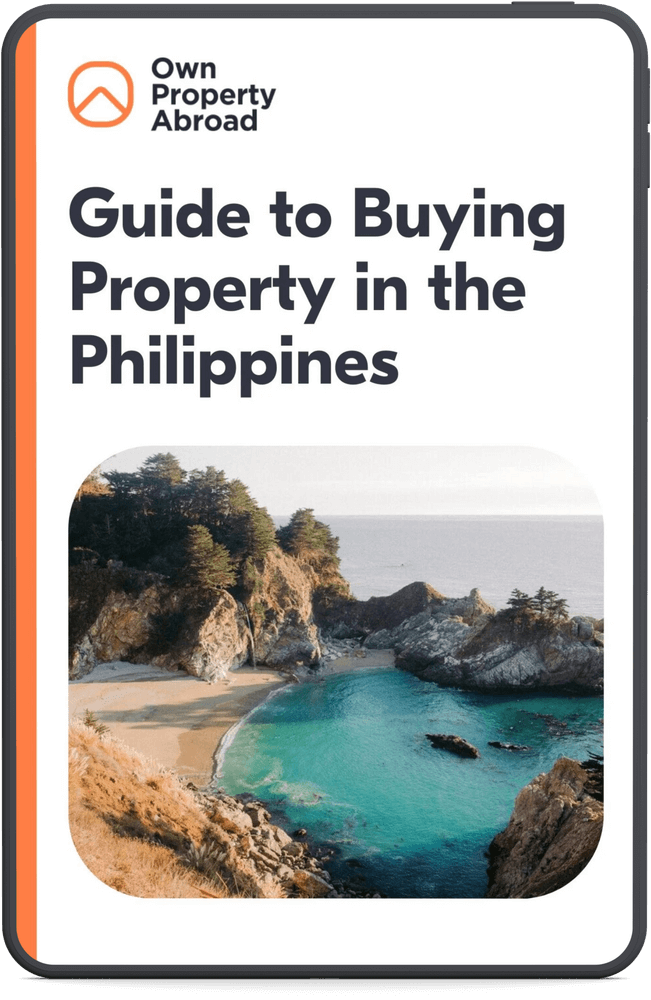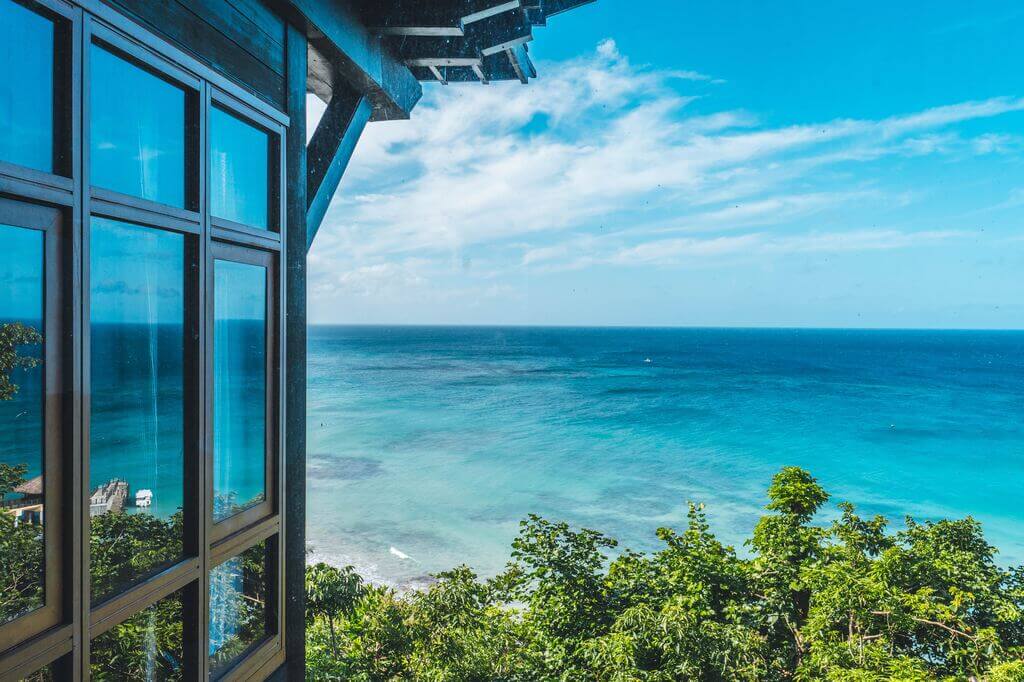Can foreigners buy property in the Philippines?
Yes, foreigners can buy property in the Philippines. However, there are several limits when it comes to foreign property ownership in the Philippines. Under Philippine laws, foreigners are not allowed to own land but are permitted to own a building or condominium unit. This means that foreigners can lease land from a Filipino national and own the construction on top of the land.
How can foreigners buy property in the Philippines?
There are three ways foreigners can buy property in the Philippines:
- Buying property through a corporation;
- Buying a condominium unit;
- Buying a freestanding house (and leasing the land).
For a more detailed explanation of these ways, take a look at these different methods below.
1. Buying property through a corporation
The safest but most complex method for a foreigner to buy property in the Philippines is through a corporation, such as a domestic corporation. Companies are legal entities in the Philippines that can own both land and buildings, which gives foreigners the unique opportunity to buy real estate through this entity.
However, it’s important to note that a domestic corporation in the Philippines is not always 100% foreign-owned. The minimum capital requirement to obtain up to 40% foreign ownership is $100, while a Philippine national must own the other 60% of the shares. Foreigners can get 100% ownership in a domestic corporation in the Philippines if they invest at least $200,000.
How much does it cost to set up a corporation?
The primary government agency responsible for registering your company is the Philippine Securities and Exchange Commission (SEC). The minimum initial capital is $200,000 to establish a fully foreign-owned corporation. However, you can reduce this by partnering with Filipino investors and complying with the 60% locally owned shares. When doing so, you only need a minimum initial capital of ₱ 5,000 ($87.45). In addition, there is also the payment of registration fees, which you can easily calculate using the SEC Registration Calculator.
When incorporating, ensure you have a business bank account in the Philippines, which you can do in two weeks. Once all your documents are ready, you can fairly quickly register with the SEC. It does not take much longer to incorporate since the entire registration process with the SEC usually only takes at least three weeks.
2. Buying a condominium unit
Instead of buying land in the Philippines, most foreigners choose to buy a condominium unit because they are allowed to own a unit in their name, according to the Condominium Act. The only requirement is that Filipino citizens or Filipino-owned corporations must hold at least 60% of the branches of the condominium.
It’s important to note that Philippine law prohibits land ownership by foreigners. Still, condominiums are a way for them to invest in real estate in the country since foreigners are allowed to rent it out. Through this, you can still generate income even if you are outside the Philippines. In addition, condominium ownership is limited to an initial 50 years. However, it can be renewed for another 25 to 50 years.
3. Buying a freestanding house (and leasing the land)
While foreigners cannot buy land in the Philippines, there is no prohibition against purchasing only the building itself. Foreigners can buy only the freestanding house rather than the ground it is on. Foreigners may then enter into long-term leases with the landowner to enjoy their homes without any legal troubles.
In the Philippines, foreigners can take a lease agreement for 25 years, with the possibility of renewal for another 25 years. However, if it is intended for investment, you should register the lease with the Department of Trade and Industry, allowing you up to a 50-year lease with a potential extension of 25 years. Subleasing will, however, depend on the agreement between you and the landowner.
What are the best locations to buy a house in the Philippines?
Now that you already know how foreigners can buy property in the Philippines, the next question is what the best places to buy a house in the Philippines are. When buying a house in the Philippines, it is equally important to align the location with your specific intentions for the purchase. You must consider your lifestyle, available amenities near the area, and whether you intend to reside for a long time, use it as a holiday home, or for property rental. Below, we’ve listed the best locations to buy property in the Philippines.
Metro Manila
Metro Manila is the primary economy of the Philippines, particularly in Makati and Taguig. It hosts numerous multinational companies, business districts, high-end condominium units, and housing subdivisions, making it an excellent choice if you plan to work or invest in the country.
However, it is also essential to consider the high cost of living associated with Metro Manila and traffic and pollution. Nonetheless, investment in real estate in the metro is very lucrative due to the increasing demand for residential spaces.
Cebu
The Province of Cebu is friendlier for those who want the perfect blend of city and island lifestyles. When living in Cebu, foreigners can easily access stunning beaches, refreshing mountains, and outdoor activities. Further, a few minutes of travel can easily transport you to Cebu City, where many economic activities and international businesses operate.
Bohol
For a more laid-back lifestyle, Bohol is the perfect option. The province is renowned for its crystal blue beaches and the world-famous Chocolate Hills. An increasing number of foreigners are visiting Bohol, accounting for almost 45% of tourist arrivals. Given Bohol’s understated appeal and increasing foreign interest, this indicates potential growth in future housing demand.
Valuable insights and practical advice, distilled from years of expertise and real-world experience.


Transaction fees and property taxes in the Philippines
In addition to the purchase price of the property and the payment for the lease of land, it is crucial to take note of the various fees and taxes you might incur. Here is a detailed breakdown of these financial obligations:
Transfer Tax
After paying the seller the property’s purchase price, you would naturally want to have the property title in your name. To transfer the land title, it’s necessary to pay the Transfer Tax. The Transfer Tax rate is 0.5% of the property’s sales price, zonal value, or fair market value, whichever is the highest. In the case of a donation or inheritance, a Donor’s Tax or Estate Tax must be paid as a Transfer Tax, which has a tax rate of 6%.
Title Registration Fee
The final step is land title registration. You would have to visit the Register of Deeds, where you can find the property. Here, you should show the payment of the previously mentioned taxes. The Title Registration Fee amount varies per location, but it is typically at a rate of 0.25% of the selling price. Once you have paid the Title Registration Fee, the buyer can acquire a title in his name, confirming his legal ownership.
Real Property Tax (RPT)
Property owners in the Philippines must pay an annual Real Property Tax (RPT). This tax is imposed by the LGU where the property is located and is due on January 1 every year. The Real Property Tax rate differs based on the location. According to the Local Government Code of 1991, there are two different Real Property Tax tax rates:
- 1% of the assessed value for properties in the province.
- 2% of the assessed value for properties within Metro Manila.
You can use our Real Property Tax calculator to compute the RPT tax you must pay in the Philippines.
Need help buying property in the Philippines? We’re here to guide you!
Buying property in the Philippines as a foreigner can be a complex journey, from understanding local property laws to finding the right property that meets your needs. Our team of experts is here to guide you through each step, ensuring a smooth and compliant process. Whether you need assistance with the entire buying process or specific legal aspects, we provide personalized support to help you make informed decisions. Leave your details below, and we’ll reach out to assist, or email us directly at [email protected] for more information.
Frequently Asked Questions (FAQs)
Can foreigners own land in the Philippines?
Generally, foreigners cannot own land in the Philippines. However, exceptions exist, such as by setting up a corporation or when you acquire the property through inheritance.
How can foreigners invest in the Philippines?
Foreigners can invest in the Philippines through various avenues, including investing in Philippine Stock Exchange-listed companies, establishing corporations, or joint ventures with Filipino partners where you can invest in real estate. It’s crucial to adhere to each investment option’s specific regulations and requirements.
How to buy a house in the Philippines?
When buying a house in the Philippines, start by identifying a suitable property and negotiating terms with the seller. Conduct thorough due diligence, including property inspections and title checks. Pay the required taxes and fees, and have the property registered under your name.
Can foreigners live in the Philippines after buying a house?
There are several visas foreigners can apply for to live in the Philippines after buying a house there, such as the Special Retirement Visa (SRRV) and the Investor Visa (SIRV).






4 Responses
Is it not possible to enter into a legal arrangement with local solicitors, whereby they buy the land (51%) but agree that in the event of a sale they will give you the proceeds. I believe such mechanisms are in force in Thailand?
Hi Steven,
While Thailand has certain legal mechanisms allowing foreigners to engage indirectly in land ownership, the situation in the Philippines is different due to strict land ownership laws. In the Philippines, foreigners are not permitted to own land outright. The concept of having local solicitors or partners hold a 51% stake on behalf of a foreigner with an agreement to pass on sale proceeds can pose significant legal risks and is not straightforwardly supported by Philippine law.
It’s crucial to proceed with caution and seek comprehensive legal advice when considering property investments in the Philippines. Alternatives for foreigners include leasing land (up to 50 years, renewable) or owning condominium units, where foreign ownership is capped at 40% of the project. These methods provide more straightforward and legally sound pathways for foreigners to invest in Philippine real estate.
can someone help me a good agent for house and lot for sale in Batangas? 🙂
Hello Lorie, to sell your house and lot in Batangas please send us an email at [email protected].